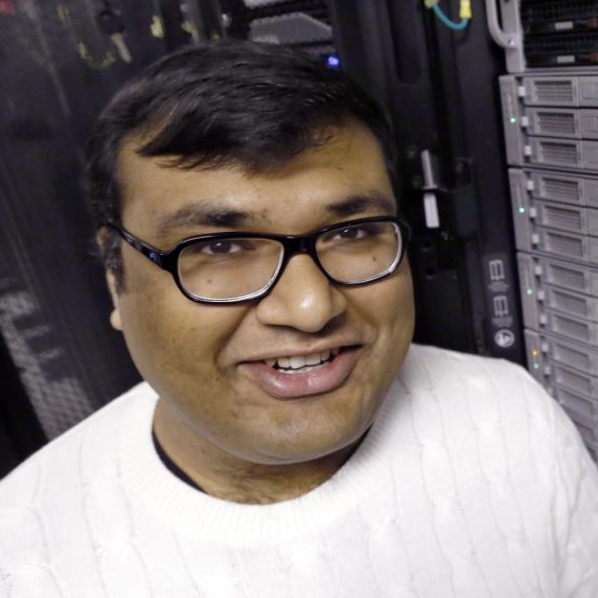
In this Thursday, Nov. 21, 2013 photo, Abhinav Gupta stands near one of the computer clusters used in his research at one of the computer server areas on campus at Carnegie Mellon University in Pittsburgh. The school is letting hundreds of computers run constantly to scan millions of images off the Internet, and have the computers make connections on their own. The plan is to let the system run forever. (AP Photo/Keith Srakocic)
Abhinav Gupta, an associate professor in the Robotics Institute who specializes in computer vision and large-scale visual learning, is one of just 31 scientists selected by the Office of Naval Research (ONR) for its 2018 Young Investigators Program.
The three-year award will fund Gupta’s efforts to enable computers to use common sense knowledge for purposes of planning and perception, much as people do. The hope is that this can improve tasks such as image classification, navigation and manipulation.
The ONR’s Young Investigator Program is one of the nation’s oldest and most selective science and technology basic research programs. This year’s winners were selected from more than 340 highly qualified applicants. Since 1985, the program has sponsored early career academic researchers whose scientific pursuits show outstanding promise for supporting the Department of Defense, while also promoting their professional development.
“To meet the demand signal from the 2018 National Defense Strategy, we must attract the best and brightest minds to work on naval warfighting challenges,” said Rear Adm. David Hahn, chief of naval research. “The Young Investigator Program does just that.”
Gupta, who joined the Robotics Institute as a post-doctoral researcher in 2009 and as a faculty member in 2011, has received a number of awards, including the Sloan Research Fellowship, Bosch Young Faculty Fellowship and the Okawa Foundation Research Grant.
Byron Spice | 412-268-9068 | bspice@cs.cmu.edu